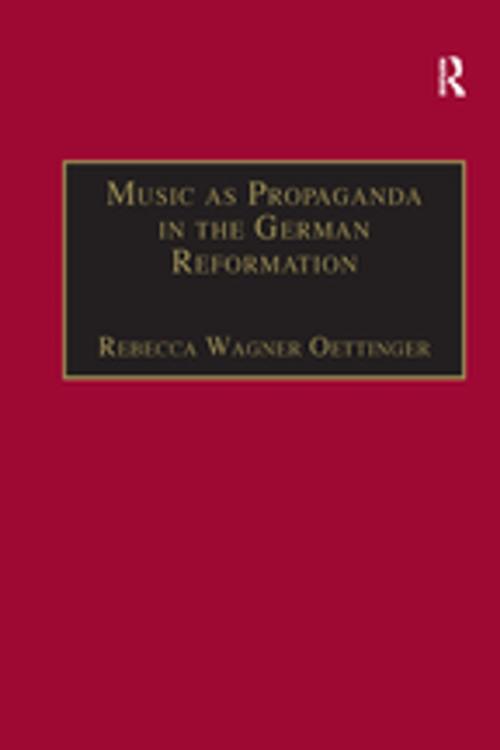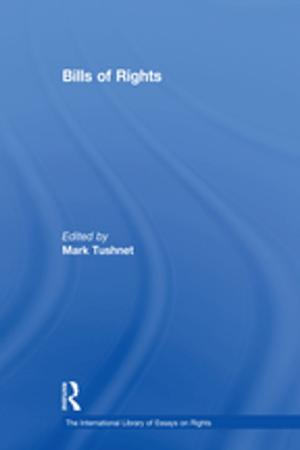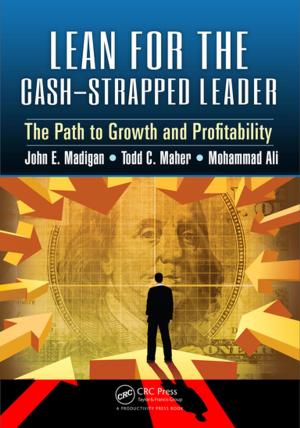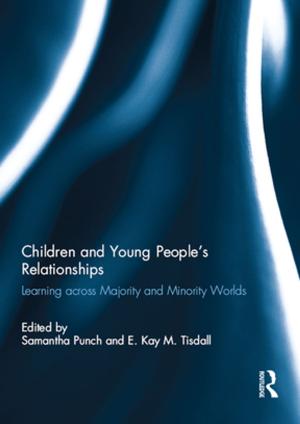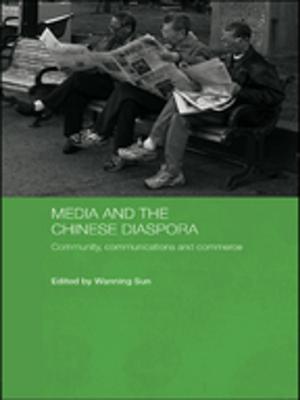| Author: | Rebecca Wagner Oettinger | ISBN: | 9781351916363 |
| Publisher: | Taylor and Francis | Publication: | March 2, 2017 |
| Imprint: | Routledge | Language: | English |
| Author: | Rebecca Wagner Oettinger |
| ISBN: | 9781351916363 |
| Publisher: | Taylor and Francis |
| Publication: | March 2, 2017 |
| Imprint: | Routledge |
| Language: | English |
Over the first four decades of the Reformation, hundreds of songs written in popular styles and set to well-known tunes appeared across the German territories. These polemical songs included satires on the pope or on Martin Luther, ballads retelling historical events, translations of psalms and musical sermons. They ranged from ditties of one strophe to didactic Lieder of fifty or more. Luther wrote many such songs and this book contends that these songs, and the propagandist ballads they inspired, had a greater effect on the German people than Luther’s writings or his sermons. Music was a major force of propaganda in the German Reformation. Rebecca Wagner Oettinger examines a wide selection of songs and the role they played in disseminating Luther’s teachings to a largely non-literate population, while simultaneously spreading subversive criticism of Catholicism. These songs formed an intersection for several forces: the comfortable familiarity of popular music, historical theories on the power of music, the educational beliefs of sixteenth-century theologians and the need for sense of community and identity during troubled times. As Oettinger demonstrates, this music, while in itself simple, provides us with a new understanding of what most people in sixteenth-century Germany knew of the Reformation, how they acquired their knowledge and the ways in which they expressed their views about it. With full details of nearly 200 Lieder from this period provided in the second half of the book, Music as Propaganda in the German Reformation is both a valuable investigation of music as a political and religious agent and a useful resource for future research.
Over the first four decades of the Reformation, hundreds of songs written in popular styles and set to well-known tunes appeared across the German territories. These polemical songs included satires on the pope or on Martin Luther, ballads retelling historical events, translations of psalms and musical sermons. They ranged from ditties of one strophe to didactic Lieder of fifty or more. Luther wrote many such songs and this book contends that these songs, and the propagandist ballads they inspired, had a greater effect on the German people than Luther’s writings or his sermons. Music was a major force of propaganda in the German Reformation. Rebecca Wagner Oettinger examines a wide selection of songs and the role they played in disseminating Luther’s teachings to a largely non-literate population, while simultaneously spreading subversive criticism of Catholicism. These songs formed an intersection for several forces: the comfortable familiarity of popular music, historical theories on the power of music, the educational beliefs of sixteenth-century theologians and the need for sense of community and identity during troubled times. As Oettinger demonstrates, this music, while in itself simple, provides us with a new understanding of what most people in sixteenth-century Germany knew of the Reformation, how they acquired their knowledge and the ways in which they expressed their views about it. With full details of nearly 200 Lieder from this period provided in the second half of the book, Music as Propaganda in the German Reformation is both a valuable investigation of music as a political and religious agent and a useful resource for future research.
